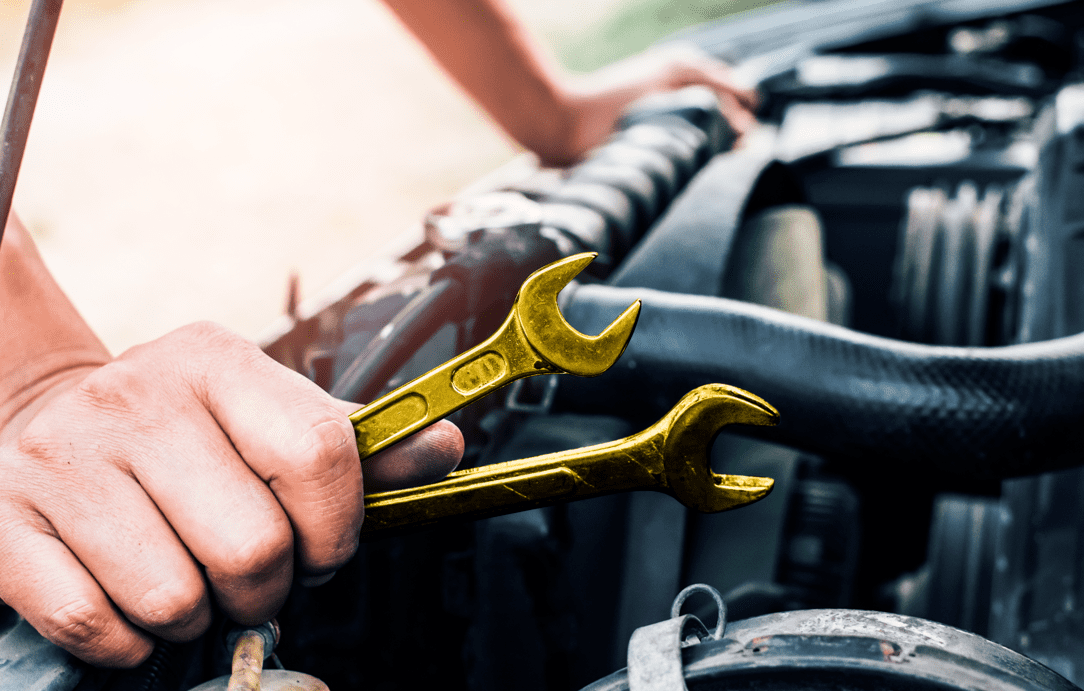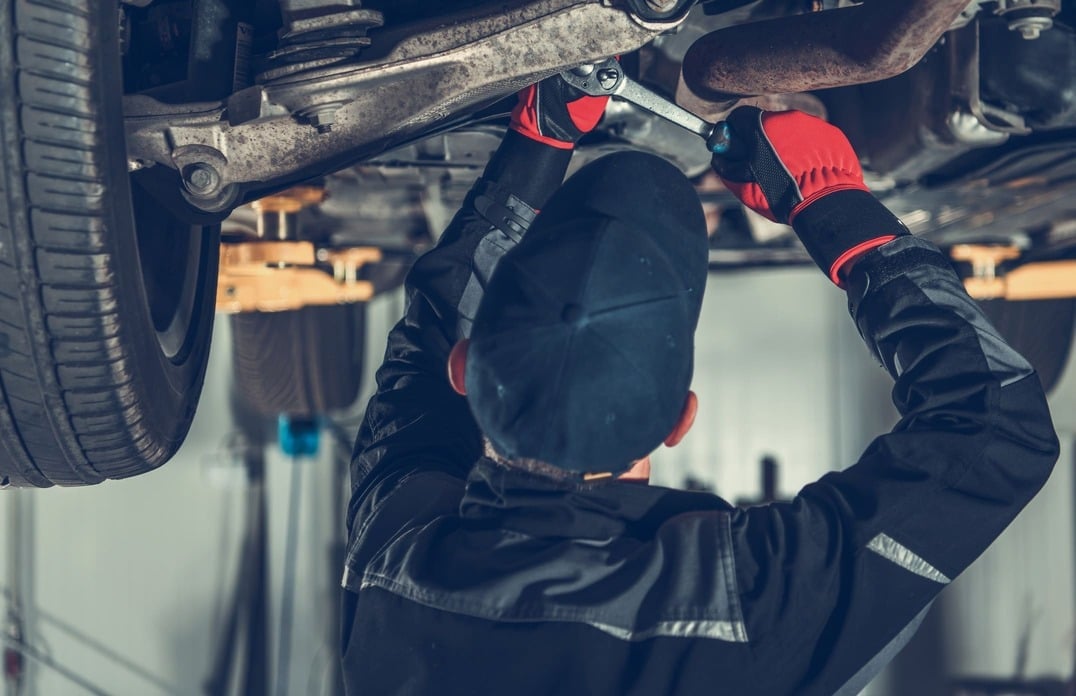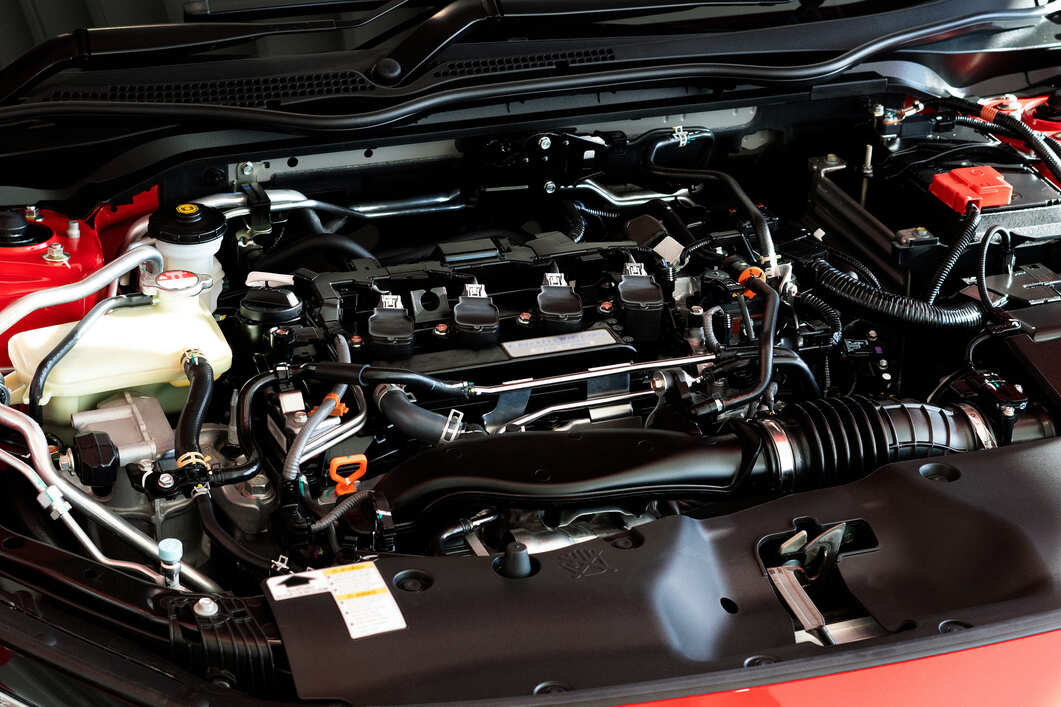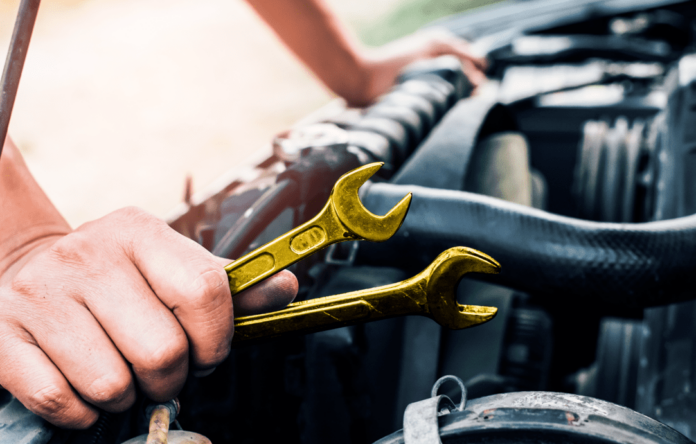Have you ever noticed your car vibrating more than usual when driving? A vibrating car is annoying as it takes away the comfort when you drive and leaves you with back pain and soreness, especially after a long drive.

There are several issues that can explain why the car is in such a state and it is also a common warning sign that might lead to a much bigger problem, if it is not resolved early. Here are some components that you should pay attention to when you experience excessive vibrations while driving.
Tires
Take a look at your tires first. They are commonly the cause of a car vibrating when driven at high speeds, for a few reasons.

-
Out of Balance Tires
When the vibrations start to pick up after you start speeding, your tires are probably unbalanced. You can easily confirm this by looking for flat spots on your tires. The good news is, rebalancing your tires could easily fix this issue if the damage to your tires is minimal. Unfortunately, if they have been severely damaged, you might have to replace them altogether.
To get your tires rebalanced, take your car to a workshop and the mechanic will inspect your tires for spots with unusual tire wear. A calibrated weight will be added to the tire on the opposite side of the spot to counteract the imbalance. It only costs RM4-5 per tire for a rebalance so get your tires checked or you might end up having to spend a fortune to replace them.
-
Underinflated Tires
Without enough air in your tires, the pressure on your tires will not be exerted uniformly. This causes your car to vibrate while moving at high speeds. The misaligned rotation will throw off the balance of your tires, leading to an uncomfortable and hazardous driving experience.
Remember to properly inflate your tires to avoid excessive vibrations while driving or even a blowout.
Read more: What You Need to Know About Car Tires
Brakes
If your car only vibrates when you brake to slow down, the vibrations might be caused by faulty parts in your brakes.
-
Warped Brake Rotors
When your brake rotors constantly go through heavy braking, it will become warped due to overheating. This causes it to dig into brake pads and causes vibrations when the brake is applied. Warped brake rotors should be replaced immediately to avoid any dangerous incidents from happening while you drive in the future.
-
Brake Caliper Sticking
A faulty brake caliper may cause vibration in the brake pedal and steering wheel when you attempt to brake. This can easily be confirmed when you smell a distinct burning odor whenever the car comes to a stop. If left alone, the effectiveness of your brakes will be reduced and you will not have enough stopping power when braking.
Once you confirm that your brakes are not working as intended, it is really important to get it serviced and replaced immediately.
Steering
Another possible main culprit to that has been causing the vibrating problem could also be the steering system.
-
Power Steering
Does your car drive fine on a straight road but starts to vibrate when turning a corner? You might have an issue with your power steering. When this happens, check your power steering fluid reservoir to determine if there is a leak. The reservoir can be found in the engine bay but its location differs according to car brands, however you can locate it easily since the reservoir’s cap is labeled with ‘Power Steering Fluid’.
The power steering system requires adequate fluid for smooth steering. Without it you will not be able to keep full control over your car and turning the car will be very difficult, hence the vibrations.
You might risk damaging your power steering system if you continue driving if there is a leak. Immediately send your car to a workshop so they can have a look at it and provide you with the necessary fix.
Suspension
Notice your car vibrating abnormally even when you are driving at a low to medium speed? This could point to an issue with your car’s suspension system.

-
Misaligned Suspension System
Continuously driving over hard bumps or potholes can cause your suspension to accumulate damage. Once the damage is too great, it’ll cause your suspension to misalign which would result in a slight vibration on the steering wheel.
-
Loose & Worn Components
Most of the time, the cause of your car vibrating lies in the tires, but sometimes it can also be caused by loose and worn-out components in your suspension system.
Excessive wear and tear to components like the ball joints, control arm bushings, or bearings are the main cause for this and the vibrations you experience could be a warning that your suspension system is in trouble.
Talk to your mechanic and get these components checked to make sure everything is connected properly and any worn out ones to be replaced.
Engine
An engine that rattles could be a nightmare for car owners, especially if accompanied by intense vibration from the engine compartment. You might want to take a look at these components if you notice your engine is shaking more than usual during idle or when driven.

-
Faulty Spark Plugs
Spark plugs help start your car and keep it running by creating electricity to ignite the mixture of air and fuel in the combustion chamber so the engine’s piston can get in motion as well as continue running. When you step on the accelerator or when you reach a certain speed and your car starts to shake violently, your spark plug might have lost its spark – it can no longer create electricity effectively.
With a worn out spark plug, the cylinders in your engine could misfire when it’s running or idling. Check your spark plugs to see if they need to be replaced and take a look at the wiring as well to make sure everything is properly connected or if a replacement is needed.
-
Failing Timing Belt
Various critical components of the engine depend on the timing to run smoothly. A slight crack or tear on the timing belt can cause your car’s engine to vibrate. If the timing belt is loose or damaged, a number of belt-driven components such as the fan and piston will not be able to function properly, which will result in violent vibrations and rattling sounds. Be sure to do a visual inspection on the belt to see if it needs to be replaced.
-
Worn Out Motor Mounts
Motor mounts are responsible for supporting the engine to make sure it stays snug in its compartment in the engine bay as well as absorbing shocks when the car is moving. When they are damaged or worn out, this causes the engine to vibrate excessively when your car is idling or being driven.
Read more: Car Engine Overheating: Here Are the Causes & What to Do When It Happens
Buy a CARSOME Certified Car for Peace of Mind
Whatever the cause it may be, if a vibrating car is left unchecked it will threaten the endurance and safety of your car. You have to address the problem before any severe issue that could lead to an unfortunate circumstance arises.
Be sure to get a qualified mechanic to diagnose the problem so they can let you know what is actually affecting your car and what you can do to fix it.
But if you are looking to buy a car, or upgrade from your current one, CARSOME offers quality pre-owned cars that have been thoroughly inspected and professionally refurbished beyond standards to ensure your peace of mind. CARSOME Certified cars also come with the following promises:
- Professional inspection: All CARSOME Certified cars go through a 175-inspection to ensure it is free from major accidents and flood damage.
- Five-day money-back guarantee: If you change your mind after purchasing a CARSOME Certified car, you can return it back to us within five days to get a full refund – no questions asked.
- One-year warranty: We will give you an extended warranty that covers the engine, transmission, and air conditioning system in your first year.
On top of that, thanks to our CARSOME Certified Lab, CARSOME Certified cars offer safety beyond standards, complete comfort, as well as refurbished aesthetics to give you the best quality choices.
Read More: Want to Improve Your Ride? Here Are the Top Car Upgrades You Can Get
